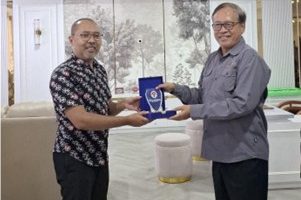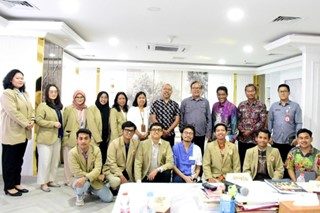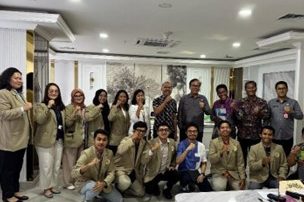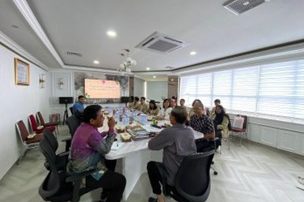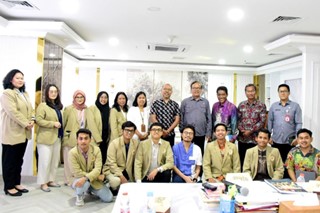
Jakarta, February 4th 2025 – The Peace and Conflict Resolution Study Program, Graduate School of Gadjah Mada University, engaged in a discussion with the Deputy for Youth Development, Ministry of Youth and Sports of the Republic of Indonesia (Kemenpora RI), Raden Isnanta, accompanied by his staff and team. The event took place on the 5th floor of the Graha Kemenpora Building, Special Capital Region of Jakarta.
This activity is part of MPRK’s study visit to deepen its understanding of Kemenpora’s role as an institution that carries out government duties and functions in the fields of youth empowerment and sports. It consists of facilitating various youth needs, such as leadership development, youth pioneering, entrepreneurship, and youth partnerships.
During the discussion, Isnanta stated that the Youth Development Index (IPP) is an important reference for designing policies and strategies for youth development in various sectors.
Isnanta hopes that with the IPP, youth development in each region can be more integrated. It provides encouragement for regional leaders to be more proactive in creating spaces to support the development of youth potential, such as education, economy, social, and politics.
On this occasion, MPRK students also shared several challenges faced by youth in their respective regions, such as limited job opportunities, low motivation to study, and the psychological impact felt by many young people.
The MPRK students expressed hope for government efforts to strengthen youth empowerment capacity through more accessible and affordable programs.
The goal is to ensure that the benefits are felt evenly and help address existing challenges, as well as create opportunities for growth, such as skill training, mental health support, and access to job opportunities, which can improve the quality of their lives.
At the end of the discussion, Kemenpora invited MPRK students to collaborate and participate as agents of change and peace in society. It is hoped that this visit will provide new insights for students and serve as material for further discussion in the classroom.
The study visit conducted by MPRK is in line with the Sustainable Development Goals, specifically Goal 4: Quality Education, Goal 10: Reduced Inequalities, Goal 16: Peace, Justice, and Strong Institutions, and Goal 17: Partnership for the Goals.
Written by: Tia Mega Utami
Edited by: Arni Wistriatun

